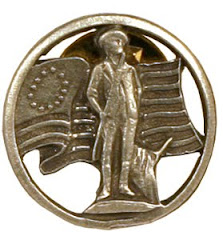Imagine my surprise this morning to read that I have one of the best jobs ever, on more than one count. Forbes ran a story on the ten happiest jobs, and I do a mix of both #1 (Biotechnology) and #3 (Education) while I help train people to be #9 (Health Care). What more could you ask for?
While not everyone in these fields shares the sentiment, the criteria on which they based the study do prove interesting food for thought. The study identified first, what the job asks of you daily, secondly, how much autonomy you have at work, and finally the relationship between coworkers at work. These are fine indicators, and in truth apply to my current situation.
I get to go to work every day doing something I was trained to do in school. So many people do something today very far flung from the field they first studied in college. I chose my major because it was something I actually thought I would enjoy doing as a job. Face it, most of what we do at work is work, and if you don't like it, well, you won't like your job much let alone your life. Furthermore, I like what I do because it has an end-user application, which is linked to why I marry up with #3. What I do helps change people's lives, and I love that I get to see people discover new things even on the rare occassions when the curriculum doesn't actually change. We do however seem to have an ever-evolving course content that changes almost every semester in some fashion, and so there is always a learning curve to challenge me as well as the students.
Considering the number of people with whom I interact, I work with a great deal of autonomy. My boss periodically checks up on things, and sometimes the departmental administration makes rounds, but unless something goes horribly awry, I hardly hear a word from the powers that be. Right now, it's up to me to get it done, and I enjoy the challenge. partly, I do what I do hoping to prove to myself that I am capable of all they expect of me.
Coworkers do seem to make a huge difference. Aside from the infrequent inconsolable student and the faculty member having a bad day who tries to share the joy with you, I enjoy working with the people here. Some of the other faculty are people I absolutely adore and respect, and even where barbs have kept some of us apart, we arrived at a mutual professional respect with one another. Most of the students are stellar, and I have been blessed so far to have very few challenges.
I wrote someone this in an email last night:
I have a great job. I have a great life. I am richly blessed, even sometimes when trials disguise the blessings that come my way.I am here to help. I cannot impress upon folks enough that I am in education because I love to teach. Sure, I could go to UPenn or something and do something else for more money, but it would keep me away from the part of my college experience that I actually enjoyed and from the thing in which I have found the most enjoyment in life. I am glad it can be mutually beneficial and hope that together we can get [your son] oriented not only for Chemistry but also for other parts of life in a direction that leads to success and satisfaction.




